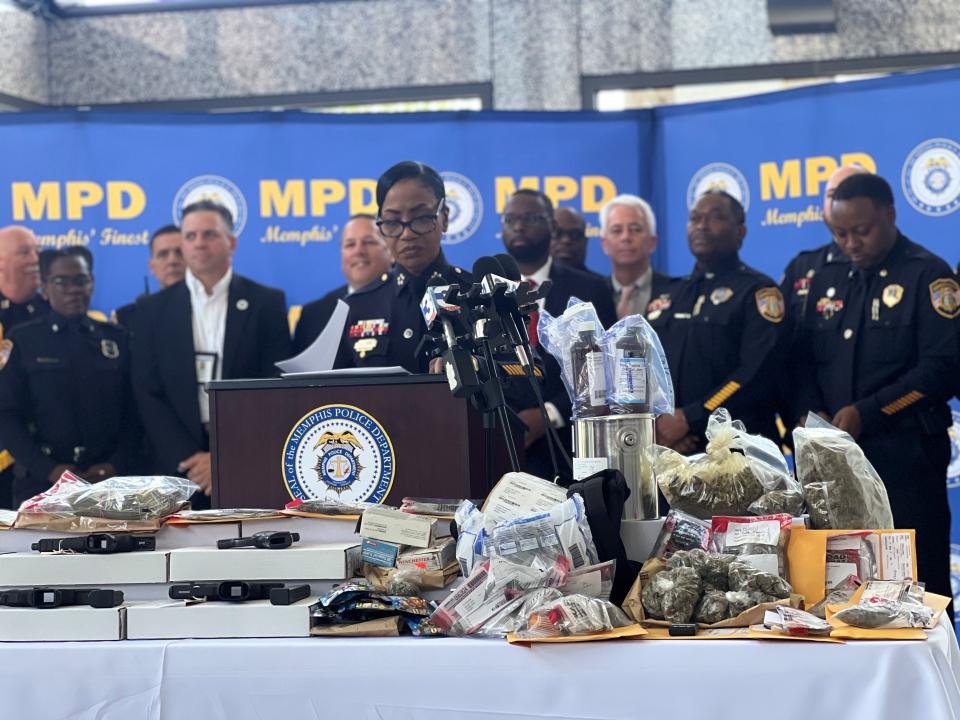In November, 2018, the legislative body of the Muscogee (Creek) Nation—a self-governed tribe in Okmulgee, Oklahoma—called an emergency session to repeal a three-year-old law that guaranteed a free press. Of the five hundred and seventy-four federally recognized Native American tribes, only five have codified press freedom. “This isn’t personal against the newspaper staff, but there’s just too much negativity in the newspaper,” one council member said at the time. “There just needs to be more positive coverage.” Overnight, Mvskoke Media, the nation’s only press outlet—with print, radio, and television coverage—became subject to the tribal government’s censorship. After the vote, tribal leaders ordered that a report on the repeal be removed.
The filmmakers Joe Peeler and Rebecca Landsberry-Baker, who is a member of the Muscogee Nation and the former editor of Mvskoke Media, captured all that came next. Their new documentary, “Bad Press,” follows Mvskoke Media during a three-year struggle to secure a constitutional amendment guaranteeing freedom of the press in the Muscogee Nation. In addition to the typical media problems of staff attrition and low pay, the journalists in the film face intimidation from tribal leaders and suspicion from members of their audience, many of whom instinctively distrust reporters who wade into tribal politics. If feature films like “All the President’s Men” and “The Post” have romanticized the press’s place in civic life, “Bad Press” succeeds in conveying what modern journalism is often like: a pretty bleak profession populated by smart, funny people chasing pockets of hope and juicy stories.
Angel Ellis, a delightfully foul-mouthed, cigarette-smoking reporter, is the film’s moral center. She is also an inciting incident unto herself—the free-press law was repealed three months following her return to Mvskoke Media, from which she had been fired seven years earlier after reporting on embezzlement charges against tribal leaders. “I was told to be careful if I wanted to keep my job,” Ellis says, in the film. “But it seemed more honest to me to do it, because otherwise what are we doing here? We need to call ourselves a public-relations department if we’re not doing the news.”
The name Trump is never uttered in “Bad Press,” a conscious choice by the filmmakers. But the film charts the implicit challenge that the American media writ large has faced throughout the past eight years: whether to pick a side in a political fight. Mvskoke Media’s small crew of journalists, already in the institutionally awkward position of being funded by the tribal government, alternately scrap with and lobby officials. When the Muscogee Nation’s legislative body—filled with public officials who seem to have a vested interest in a defanged tribal media—vote to repeal the free-press law, Mvskoke Media’s journalists are forced to take their fight to the grassroots. The constitutional amendment codifying free press could pass only if enough of the nation’s members vote to approve it via ballot measure. “Imagine you were one of the people who got to sit down and write the constitution that you live under,” Ellis says at one point. “That’s a democracy boner if I’ve ever heard one.”
Initially, Mvskoke Media’s advocacy for press freedom—particularly, its coverage of elections in which the question of the free press is put to voters—only engenders a greater skepticism of the group’s work. “They interfered with our election,” a community blogger says, in one clip. “They were trying to sway voters to enrich their selves. Mvskoke Media is not the same as it used to be, and most times I won’t even read it. I’ll just throw it in the trash.”
But “Bad Press,” which played in New York during the first week of December, is not all misery. It’s also an ode to the joys of local reporting, a portrait of a place with its share of eccentrics and heels. There’s Steve Bruner, a candidate for principal chief whose living room features two large-scale Andy Warhol-style paintings of his own German shepherd. Another candidate, named Lucian Tiger III, who was the head of the legislative body during the 2018 repeal, drives a Batmobile-knockoff three-wheeler and chides a little boy for throwing “where the girls throw from” during a festival dunk-tank game. Without staff or publicists mediating what they say, subjects actually say interesting—and revealing—things. “He reminds me a lot of me,” Bruner says, of his dog, to the cameras. “You don’t get a lot of expression out of him, but he likes to be rubbed and touched and loved. That’s kind of the way I am.”
Before the constitutional-amendment vote, Mvskoke Media operated under the secretary of the nation and commerce. The outlet’s director resigned, as did some of its journalists. In an interview, Ellis told me that, had the documentarians’ cameras not been rolling, she is certain she would have been fired from her job. “The minute that those cameras showed up on the tribal complex, it was, like, ‘Oh, shit, somebody’s watching this, and we have to tread carefully,’ ” Ellis told me. She said that the community’s trust in Mvskoke Media has also improved since the film. “It puts out there that we as an organization would put our butts on the line,” Ellis said. “We had audit reports leaking to us that the government wouldn’t give to us. Things like that are happening now.” There’s a decently happy ending to the movie, too; the constitutional amendment guaranteeing free press passes.
Signup bonus from





